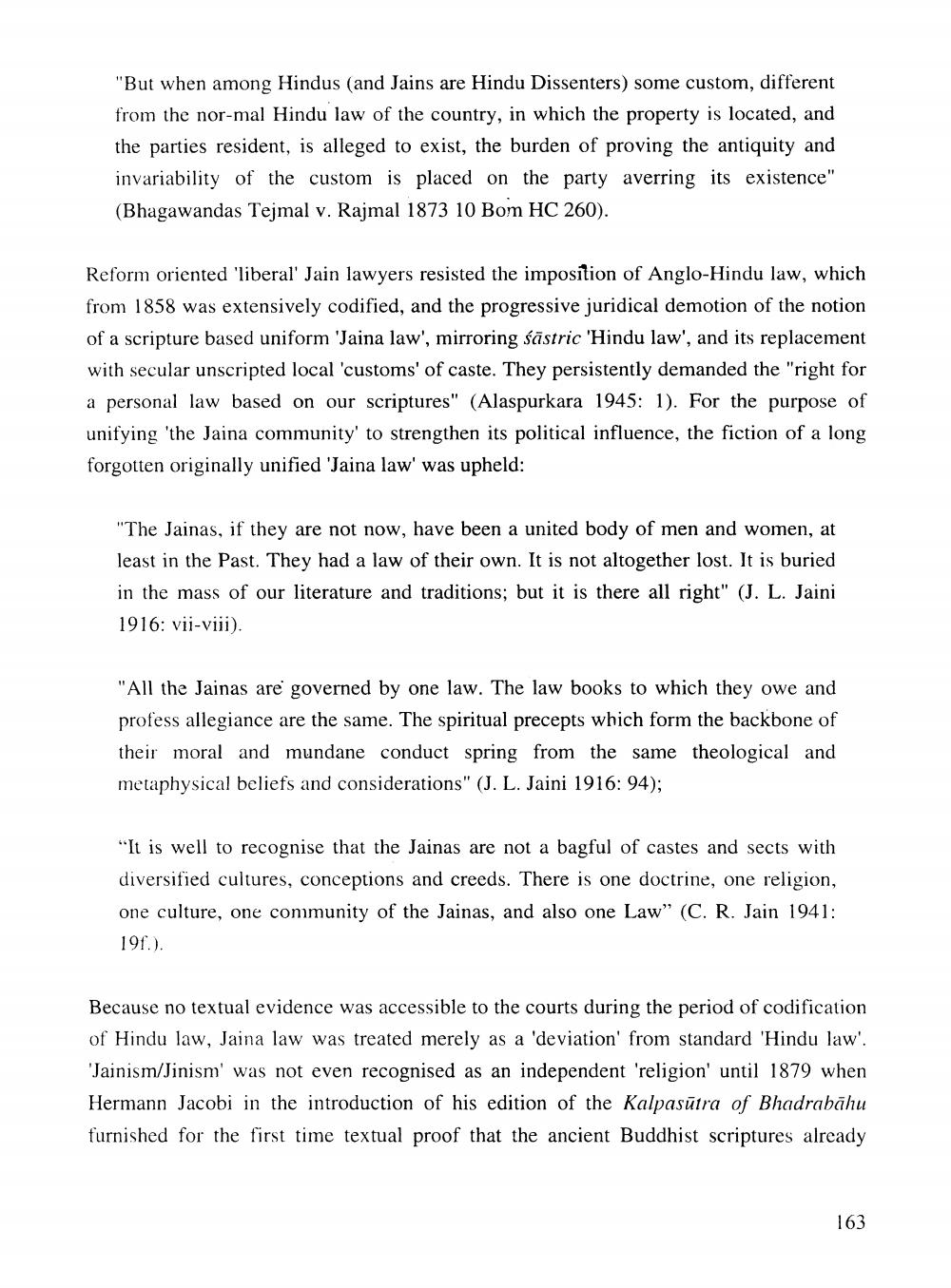________________
"But when among Hindus (and Jains are Hindu Dissenters) some custom, different from the nor-mal Hindu law of the country, in which the property is located, and the parties resident, is alleged to exist, the burden of proving the antiquity and invariability of the custom is placed on the party averring its existence" (Bhagawandas Tejmal v. Rajmal 1873 10 Bom HC 260).
Reform oriented 'liberal' Jain lawyers resisted the imposition of Anglo-Hindu law, which from 1858 was extensively codified, and the progressive juridical demotion of the notion of a scripture based uniform 'Jaina law', mirroring śāstric 'Hindu law', and its replacement with secular unscripted local 'customs' of caste. They persistently demanded the "right for a personal law based on our scriptures" (Alaspurkara 1945: 1). For the purpose of unifying 'the Jaina community' to strengthen its political influence, the fiction of a long forgotten originally unified 'Jaina law' was upheld:
"The Jainas, if they are not now, have been a united body of men and women, at least in the Past. They had a law of their own. It is not altogether lost. It is buried in the mass of our literature and traditions; but it is there all right" (J. L. Jaini 1916: vii-viii).
"All the Jainas are governed by one law. The law books to which they owe and profess allegiance are the same. The spiritual precepts which form the backbone of their moral and mundane conduct spring from the same theological and metaphysical beliefs and considerations" (J. L. Jaini 1916: 94);
"It is well to recognise that the Jainas are not a bagful of castes and sects with diversified cultures, conceptions and creeds. There is one doctrine, one religion, one culture, one community of the Jainas, and also one Law" (C. R. Jain 1941: 191.).
Because no textual evidence was accessible to the courts during the period of codification of Hindu law, Jaina law was treated merely as a 'deviation' from standard 'Hindu law'. 'Jainism/Jinism' was not even recognised as an independent 'religion' until 1879 when Hermann Jacobi in the introduction of his edition of the Kalpasūtra of Bhadrabāhu furnished for the first time textual proof that the ancient Buddhist scriptures already
163




